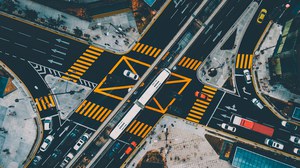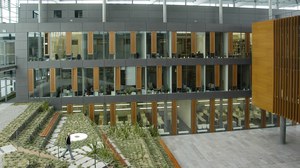Research and teaching in our group
Our research group offers numerous opportunities for seminar papers, theses and teaching. The focus is on data analytics in transport, new mobility systems and agent-based simulations.
 © Devan Darshan @pexels
© Devan Darshan @pexels
Our research interests
Flexible Transport Systems:
Flexible transport systems have been the subject of research by scientists from various disciplines for quite some time. In the course of the transport turnaround, attempts are being made to find suitable fields of application for this service and to integrate flexible transport systems into the existing transport network in order to reduce CO2 emissions and improve the quality of the mobility offer. To ensure this, it is necessary to consider the entire transport system. We are not only looking at metropolitan regions and rural areas, but also at the transition areas between these two areas.
Some of the guiding questions we are pursuing are:
- How to achieve economic and ecological efficiency in mobility systems?
- What demands are made on these flexible transport systems by the local population?
- What are the recommendations for policy?
- How to efficiently embed a DRT system into an existing transport network?
Complex urban dynamics:
Complex urban dynamics can be analysed from different disciplines and form a basis for interdisciplinary cooperation for our research group. Among other things, we investigate how the population, the infrastructure and the environment interact in certain spaces. In addition, advancing digitalisation is producing numerous disruptive innovations that our research takes advantage of. New business models are also emerging that can be evaluated and adapted accordingly through research. Our research is intended to contribute to these processes and provide important insights for optimising the dynamics.
However, one of the biggest challenges in complex systems is human behaviour. This is influenced by many factors and must be taken into account for a comprehensive understanding of urban dynamics. This makes it possible to improve economic models and derive more efficient policy implications for the requirements of urban spaces. One example is the introduction of incentive structures (e.g. nudging) to improve the use of public transport.
Our socio-economic approach is complemented by agent-based simulation methods that enable data-driven analyses on these topics to be visualised and thus made comprehensible.
Current topics/questions:
- Analysing the effectiveness of new innovations and technologies
- Economic analysis of potentials of transport systems
- Approaches to solving traffic problems (minimising traffic congestion, commuting times, air pollution and traffic accidents)
- Investigation and measures to influence the modal split
Software:
Our research is also accompanied by the investigation and development of relevant software offerings that support us in collecting research data. The development of individual software components also allows us to research the usability of new offers, which enables us to derive well-founded statements on the fit of individual transport modes. Furthermore, the conceptualisation of the software in our international research projects allows for a structured analysis of local-specific factors that are necessary for the development of flexible transport systems and also for understanding complex urban dynamics.





